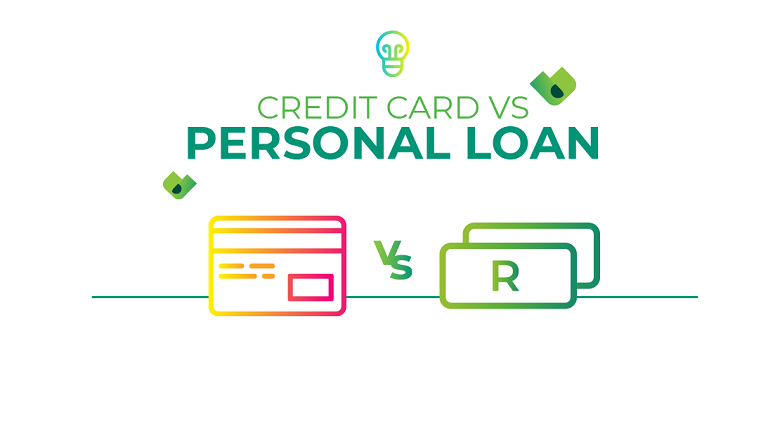What is better for travelling Personal loan or credit card
5 min read
Last Updated on January 23, 2022 by Jonathan Lopez
Is it better to take out a personal loan or utilise a credit card? Some of the criteria on which you might select which option is ideal for you are explained below.
Personal loans have no collateral and are primarily base on the borrower’s creditworthiness. It’s commonly use to pay for marriage expenses, trips, uninsure bills, and home renovations. The stronger the creditor’s credit scores, the more likely he or she is to be approve for a personal loan. The loan must be repaid by the agree-upon maturity date. Credit cards, on the other hand, provide you a certain amount of credit that you must pay back at the end of each month. You will be charge an interest rate on the amount you owe if you are unable to pay your payment. For obtaining both, you need a high CIBIL score. You can go for free Credit score checking on many of the third-party websites.
What is the difference between a travel credit card and a regular credit card?
A travel credit card includes features that might save you money while you’re on the road. A competitive foreign currency fee, bonus points per dollar spent on global transactions, and additional products like travel insurance are all examples of these benefits. Credit cards include interest-free periods (usually 44 to 55 days), which means you can use the card without incurring interest if you pay off the debt in full before the due date. You can apply for a credit card for travel if you can pay off the balance within the specified time frame.
Traveling with a credit card reduces the need to bring extra cash. Furthermore, the majority of credit card purchases come with air miles, loyalty points, and other benefits. Credit cards, according to studies, offer a better conversion rate than other traditional forex desks and banks.
What is a personal loan for travel?
A travel loan is similar to any other personal loan in that it allows you to borrow a specific amount of money to cover an impending expense, such as a vacation. When you apply for a loan, you agree to the terms of the lender, which include paying interest and any associated costs (such as upfront and continuing fees), as well as repaying the debt over a specified period of time.
Credit Card vs. Personal Loan
Personal Loan for Travel Purposes
If you decide to use a personal loan to fund your vacation, you should be informed of the advantages and disadvantages of doing so. The key advantage of a personal loan is the speed with which it is disbursed and money is transferred. The drawback is that these loans come with a high interest rate and compel you to repay more than you borrowed. Personal loans feature set interest rates, so your monthly payments will be predictable, making budgeting easier while travelling the world. If you put up an asset as collateral, you can borrow funds more than you can with a credit card.
Traveling with a credit card
One of the best parts of utilising a credit card to finance your trip expenses is that the first 40-50 days are interest-free, which you should take advantage of. If you swipe your card for Rs. 50,000 on October 3rd, for example, you will not be charged interest until about November 20th. You will be in a win-win scenario if you can pay off the entire debt by this time; you will be able to use your card anytime you want and will not have to pay even a penny as interest. They are appropriate for borrowing little amounts of money. These earn you reward points that you may use to get free flights, cash back, or shopping. They also offer more services such as travel insurance.
What should you prefer between the two?
- A credit card is a preferable option if the money is repaid within a month and the amount is little. It’s also an interest-free option if you pay off your credit card account before the due date. It’s also a very enticing option because of various offerings like cashbacks and reward points.
- This form of financing can be a strong way to earn cash back or travel rewards if you use your credit card for everyday purchasing and have the discipline to pay it off each month in full. Some people use this method to pay for all or part of their travels.
- Even if you are unable to do so, credit cards can serve as a useful backup in the event that something goes wrong. If you haven’t built up your emergency savings, a credit card can assist bridge the gap for unforeseen bills. By swiping a card, you can get the money you need right away.
- Personal loans can be used for almost anything, with the exception of higher education and unlawful activities. If you’re approve, each lender has a different timeframe for getting your money to you, but some even offer same-day funding.
- It’s also quite easy to get approved if you have decent credit, but there are still lenders who specialise in personal loans for people with bad credit. You may be require to pay a higher interest rate or obtain a co-signer. You can also receive a secure loan by putting up collateral, such as your car or a bank account.
- A personal loan is a preferable option if the amount is higher and must be return over a longer period of time, as the interest rate on a personal loan is lower than the interest rate on credit cards.
The Bottom Line
Because both of these solutions offer benefits and drawbacks, choosing which one to take is a personal choice. If you choose a personal loan, carefully study the interest rate terms, and if you choose a credit card, attempt to pay it off completely within the interest-free period, as the exorbitantly high interest paid on these cards can burn a significant hole in your pocket. Always remember to check CIBIL score (सिबिल स्कोर) before applying for any of the one.




